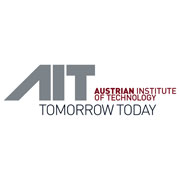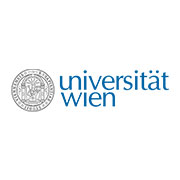
WP 6.1 Microbiome-Based Improvement of Nitrogen and Phosphorus Nutrition in Crop Production
project description
Excessive N/P fertilization causes eutrophication and species extinctions in downstream aquatic systems, promoting climate warming and ozone destruction. Therefore, it is extremely important to reduce global fertilizer input, particularly the energy-demanding and inefficiently used N fertilizers. Nutrient turnover in soils is a microbially driven process that strongly impacts plant nutrition. Hence, modulation of soil- and plant-associated microbiomes represents a promising approach to improving plant N nutrition.
Soil- and plant-associated microorganisms contribute to plant nutrition by mobilizing N; transforming these nutrients into forms that plants can take up. While microbial inoculation is already being used to improve plant nutrition, mostly single strains are applied that show mobilizing effects under laboratory conditions, but these often perform poorly under field conditions. As soil microorganisms work in a collaborative manner and often exhibit synergistic functions, microbial inoculation is often hampered by poor competitiveness and establishment in the receiving soil.
We hypothesize that so-called “microbial collaboromes” have a greater potential to improve plant nutrition than single strain inoculations. Such collaboromes are synthetic communities that comprise multiple, functionally active strains belonging to crop-associated core and keystone taxa in microbial networks of diverse plant-soil systems. They will be carefully selected based on their synergistic activities, increasing their likelihood to establish under a variety of field conditions. The overall objective is to select collaboromes in a data-driven manner, based on knowledge about their interactions and functions in relation to plant nutrition and greenhouse gas emissions.
In this WP, we will apply this “collaborome approach” to improve N nutrition in wheat. Microbiomes of plants grown at different agricultural and non- agricultural sites will reveal keystone and core taxa. Comparative genomics and functional analyses of isolated strains linked to in-situ activities via SIP-based metagenomics, transcriptomics, root exudate metabolomics, will reveal relevant functional information of promising collaborome members. Synthetic collaboromes will be assembled and tested under greenhouse and field conditions to study their establishment and activities in the soil and/or plant environment. Community assembly and functions that are beneficial for the host plant and for the environment will be analyzed by 16S rRNA amplicon sequencing and qPCR of selected genes, analysis of N cycling, particularly inorganic N cycling, diazotrophy, and greenhouse gas production.
This WP will assess the complex interactions between nutrient cycling microbiomes, plant nutrition, and greenhouse gas emissions in a multi-disciplinary manner, and develop microbiome-based approaches to improve plant nutrition and curb fertilizer use.
work package leader

angela sessitsch
Austrian Institute of Technology (AIT)
Head of Competence Unit Bioresources
Member of the CoE Board of Directors
work package members

Foto: Clemens Fabry
aline ballot
Postdoctoral Researcher
university of vienna

Foto: Clemens Fabry
lisa carolin bilz
PhD Student
austrian insitute of technology

Foto: Clemens Fabry
hanna koch
Postdoctoral Researcher
austrian insitute of technology

petra pjevac
CoE Key Researcher
university of vienna

wolfgang wanek
CoE Key Researcher
university of vienna

dagmar woebken
CoE Key Researcher
university of vienna
involved institutions


CoE publications in wp 6.1
Publications will follow soon

